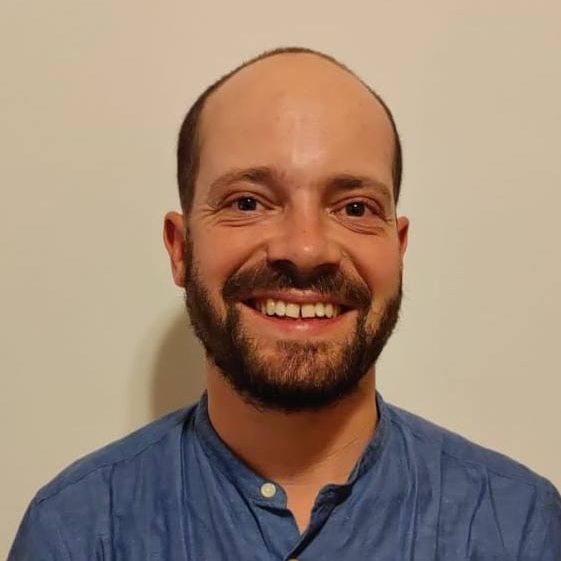“My mask protects you, your mask protects me” is the message that the UK public health authorities and local government have been promoting. The mask mandate in indoor spaces was removed in England on Monday July 19th, 2021, but was continued in Wales and Scotland.
Many continue to campaign for a return of the mask mandate in England, with a belief that this is the missing tool in England’s public health strategy that would lead to a lower prevalence of Covid-19 – whilst ignoring that Scotland and Wales have had higher case rates despite continued mask use.
The weakness in the evidence for the efficacy of mask wearing in community settings is well described, and there simply is not sufficient evidence that mask wearing, particularly cloth masks, is significantly effective in preventing viral transmission in community settings to support the certainty stated by the slogan “My mask protects you, your mask protects me.”
Proponents of this slogan, despite giving significant meaning to the wearing of masks that bears little relationship to the underlying scientific evidence, have been seemingly unable to consider other ways that masking may be experienced, beyond considering those that choose not to wear masks as being selfish.
Yet of course a cultural shift as dramatic as expecting all adults, and in some cases children, to cover their faces, is likely to cause a whole variety of responses, which may be helpful to reflect on in an attempt to make sense of such a change.
Masking as a relational tool
Masking can act as a tool through which a particular relational dynamic is enacted. The coercive nature of mask mandates means that masks are experienced as being in one part of a coercive relationship. The relationship can be described as:
-moralizer vs those in need of moral correction, or
-enforcer vs enforced.
Wearing a mask represents an entry into a relationship of this type; and a refusal to wear a mask is therefore one way of exiting this dyad.
This sense of enforcement or being moralized is compounded when our relationship with authority and the government is transactional, and enacted along lines of existing power inequalities. If we are all citizens existing in society together, each with unique and various perspectives, which deserve to be heard and thought through, and the government is just one partner within that society, then perhaps some members will assess the evidence and their personal risk, and the risk in their homes and workplaces, and will make the decision to wear a facemask.
Others will come to a different conclusion, perhaps on the grounds that the evidence for their efficacy is weak and so that wearing a mask will not significantly change one’s exposure to what may already be a very low risk, and then decide not to wear a mask.
However if we are people in a society with an authoritarian structure, where our ability to participate and do the things we wish to do every day are conditional on the approval of government, then our way of relating with power structures is no longer one of “We are all in partnership together” but one of “behavioural correction.” In such a system the mask becomes a tool for enacting that behavioural correction.
In the “enforcer vs enforced” or “moralizer vs ‘needing of moral correction,’” the ‘enforcer’/’moralizer’ role can be enticing – after all, exerting power from a position of moral judgement has been an attractive position for government and those in positions of leadership in institutions since time immemorial.
However for those on the other side of these relationships – those experiencing enforcement, or being moralized – it is an oppressive and suffocating relationship. In these circumstances, removing a mask is not a sign of ‘not caring;’ rather it becomes a safety valve and one small step towards exiting a controlling and oppressive relationship.
Masking as an attack on our communal life
Compulsory masking represents an individualistic belief that illness and ill health could be removed if only we all behaved in a certain way, and ignores the much more significant structural drivers of illness, such as economic inequality and poverty. It suggests that, at its core, interpersonal relationships are the true drivers of illness, and therefore our interconnectedness and relational lives, rather than being the very essence of our humanity, become a risk that should be managed and ideally avoided.
Masking gives off the message “I am an infection risk. You are an infection risk. We are to be avoided. Don’t get close. I am better off away from you. Stay away.”
This is a profoundly isolating and individualistic message – that we, as humans, should consider ourselves first and foremost to be infection risks, and are better off in isolation rather than in connection.
Not only is such messaging not compatible with the ideas and ways of relating with one another which are necessary in order to have a communal life, it is also based on the mistaken fantasy that it is possible to be isolated and distanced. Of course it is not, and so instead of being in relationship with, and interdependent on the whole variety of ways in which different people, groups and services, provide for one another, the isolated and distanced individuals instead become dependent on the government, alongside a small number of tech companies, to meet our basic needs.
This is an authoritarian organization of society – such that our primary relationship is with government and large corporations, instead of with one another, in all of our diversity, and therefore masking can represent an attack and a hollowing out of our communities and our communal life.
A trauma informed approach to masking
Trauma-informed healthcare takes the view that an individual’s personal experiences should be taken into consideration in their interaction with healthcare services. For example, an individual who experienced multiple disrupted attachment relationships in early life may struggle if the same pattern of relationships are repeated when they access healthcare services.
A trauma-informed approach would therefore strive to ensure that there is continuity of care in order to reduce the risk of disrupted relationships with healthcare workers reactivating the trauma that may have occurred as a result of disrupted relationships in early childhood.
Yet the masking policy – particular with regards to mandatory masking – is anything but trauma-informed. Instructing people that they need to cover their faces in a certain way, and if they do not do this, then they are behaving irresponsibly and inviting danger, and therefore bear the responsibility if there are negative consequences if they do not wear masks, is analogous to the experience that some people have, particularly women, of being instructed to ‘cover up,’ with the message of ‘If you don’t wear certain clothes you are immoral, and are inviting tragedy.”
A trauma-informed approach would recognise that the coercive and controlling way that people are ordered to cover their face could cause distress for people who have had negative experiences of being ordered to dress in a certain way, and therefore not wearing a mask is an assertion of not being willing to submit oneself to retraumatizing experiences which involve covering our faces, and therefore our means of emotional expression.
Masking as an accessibility issue
Like so many of the other interventions that have been put in place in response to the pandemic, masking exacerbates difficulties along existing inequalities. For those who do not have any communication or sensory difficulties, masking may not pose any particular difficulty in verbal communication.
However for those that have sensory difficulties (for example, hearing impairments) or who have social communication difficulties, such as autism, or who have cognitive impairments, then any reduction in sensory input makes communication more challenging. Similarly, for people who may experience paranoid psychoses, a world where everyone wears masks can serve to compound that feeling of paranoia and being frightened.
Therefore, the medical exemptions for an individual masking are not sufficient to increase accessibility for people with cognitive or sensory difficulties, and some may choose not to wear a mask to make the societal environment more welcoming to those with additional needs.
Masking as a representation of medical power
The pandemic has seen an extension of the medical reach within society – such that every detail of our interpersonal relational lives has come under the framework of medical decision making, and have been considered primarily in terms of medical risk. There is now a complex system of biosurveillance, passports, testing, and various mandates in place that govern all of our lives. If all humans being considered as an infection risk becomes the organising principle for society, then this represents a hyper-expansion of the reach of the medical system, which can then be used as a tool of surveillance and control.
The reality that much of the focus of our pandemic response has been on coercive interventions applied to low-risk adults and even lower-risk children, rather than on building the health service capacity and tackling the drivers of Covid mortality, such as poverty and deprivation, suggests that this system of medical power is as much about control and exploitation as it is about protecting health.
Wearing a mask, therefore, signals to others “I consent to this system, I consider myself to be an infection risk to others and wish to be governed as such” and significantly “I invest in the medical system as the authority to make and impose decisions on society independent of democratic and legal safeguards.”
In this context, choosing to not wear a mask can be a simple act of rejection of medical power, of affirming the reality that our lives are complex, and our relationships diverse, and therefore do not consent to diminishing ourselves to a risk that needs to be managed, but rather assert our humanity and dignity, and most importantly our respect for our fellow citizens.
Not wearing a mask, therefore, can make a statement of “I respect that we all have unique relationships to health and to authority, with our own individual perspectives. I am curious to hear what you think, and I do not view you as a risk to be managed, but as an equal citizen with whom I am privileged to share the world.”
Our response to the pandemic will be as varied as the number of humans living through it, and we will all attach our own meaning to the various experiences and symbols that have arisen during the pandemic era. Certainly the gap that exists between the government-approved slogans of “Your mask protects me, my mask protects you” and the actual strength of evidence of the efficacy of mask wearing in reducing viral transmission has given ample room for those attracted by a moralising position to apply all manner of additional meaning to the wearing of a mask.
However the invocation of the legal system and other coercive functions of the state to enforce one set of meanings, one understanding of health behaviours onto others, needs to be resisted. We all must live in this world and our society together, and therefore need to listen and be open to different perspectives – however it is only possible to do that once the threat of mask mandates and other tools of coercion are removed.
Join the conversation:

Published under a Creative Commons Attribution 4.0 International License
For reprints, please set the canonical link back to the original Brownstone Institute Article and Author.









